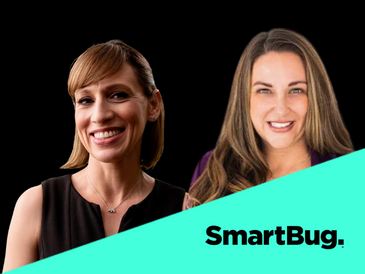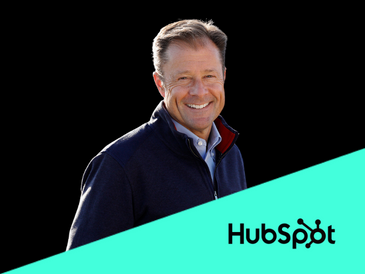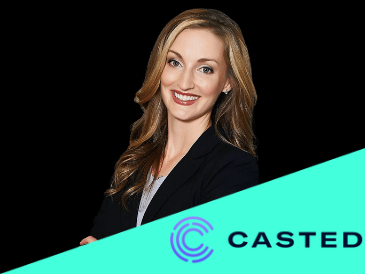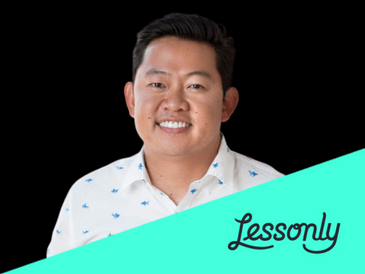Stephanie Valenti (23:09):
Yeah, yeah. It's funny, as you say that, I think about what did I do? I didn't pretend, I was pretty out with it, but you know what? I always had a caveat statement that would be like, "Yeah, I have children, but my husband stays home." I more took the career path and he owns a small business, but I would, "Oh, but my husband's with them. So it's fine." Why did I have to say that? But I did. I did always say that.
Jen Spencer (23:34):
When I worked in the theater and I would do PR and I'd be at the theater at night, people, anyone would come to me and say, "Oh, well, who's watching your kids? And sometimes I would get really sassy. And I would say, well, "I have a really nice house cat. She's great. She's super responsible." So you wouldn't ask my husband that if he were here right now. Anyway.
Stephanie Valenti (23:58):
Yeah. Well, Jen, something that is big right now that we're all talking about is imposter syndrome. It's become something that's way more well known today and maybe didn't have a name in the past, but it does now. And I know that this is something that you're passionate about talking about at SmartBug. We have to do a mentorship program. And so I'd love to hear what you tell those mentees.
Jen Spencer (24:20):
Yes. Well, first I want to say is everyone assumes that I don't have imposter syndrome anymore because I'm the CEO. You don't have that. It's a every day, every day kind of battle for sure. And so there's two ways that I work through my imposter syndrome because I don't envision that it's going to go away anytime soon. I've had people tell me, you don't just ignore it. Don't let that get in your way. Well, that is not actionable to me. So what's actionable first is preparation. So typically if I'm feeling that sense of imposter syndrome, like I don't belong, it probably means I skipped some kind of a step. I didn't take the time to prepare myself in some way, shape or form. So that for me is a trigger or a signal for me. And it's something that I focus on being as prepared as I possibly can.
(25:06):
The other thing is when I took this role as CEO, the board was very, very generous in wanting me to attend a program, Wharton's Executive Development Program. It was basically a two-week MBA, so it was exhausting. I haven't pulled all-nighters like that since I was back in college, but it was great. And I had an executive coach who really helped me during those two weeks, because I'd be in a room with 42 people, CFOs, COOs, global VPs of sales at big companies, like 10X-sized companies, 50X, big, massive organizations. And we were going through deep financial records and talking about M and A strategies. And I'd be sitting there like, what am I doing here? I don't belong here. And what my executive coach taught me was a visualization technique.
(26:03):
So she said, imagine, recognize that. So I envisioned that voice as this red sort of blob, red, because it was like a stop sign for me, it was like, stop. It's preventing me from interacting, exchanging with the group, and to picture it and acknowledge it. Like okay, I see you, but I don't have time for you right now. So I'm going to take you and I'm going to put you over here on this shelf. I'm going to get you out of my way. And then what would happen is it would free me to just engage in whatever was happening and if that imposter syndrome was invalid, then it would just disappear.
(26:41):
And if it wasn't, if it still lurked around and I saw it on the shelf, then guess what? It means I needed to go back and I needed to do a little bit of preparation and to get myself into a more comfortable space. And so that simple visualization technique I share with my mentees through our mentorship program, you mentioned, Steph, that we have at SmartBug. And it's good for not just imposter syndrome, but also things like when you're navigating a difficult customer conversation or management related conversation. And you've got these little voices in your way, telling you a story that's not actually happening. So those are things, I'm a physical tactical visual type of person, that have really helped me.
Stephanie Valenti (27:19):
That's awesome. I'm going to have to try that one.
Jen Spencer (27:22):
Wonderful. Well, I want to ask Steph, if there's any other examples, any other advice that you have, if there's a woman that's listening to this, or maybe even if there's a male executive who's thinking about, I think about Ryan, our founder and how much he's invested in me and mentored me and saw, we say take a chance. I don't have that resume necessarily of CEO. Although it makes sense for SmartBug, any guidance you would give those folks?
Stephanie Valenti (27:57):
I talk about this in a lot of the courses that I teach and people that I mentor. And I think the biggest thing is you've got to take a risk. And so when people ask you or offer you opportunities, even if they're uncomfortable, you have to raise your hand and say yes, and eventually they become comfortable, right? What's uncomfortable today is comfortable tomorrow. And so that risk taking piece is huge. I lost myself a little bit in that first executive role, I didn't feel like myself anymore.
(28:30):
When you get really stressed out, you become somebody different. And I was talking with the CFO, who I had not had a great relationship with. And I had said, "I don't know what's happened. I don't know where I am." And he said, "Steph, you're somebody that takes a risk." And so the quote that he said that has stuck with me forever is "Think about the risk and think about the worst thing that could happen. What is the worst outcome? And if you can live with that outcome, then what's the risk?" So that is in my head always. And so I would encourage everybody, just raise your hand a little bit more.
Jen Spencer (29:07):
Excellent. I think I would share as some examples, I think that's great. And it goes into my idea of falling back on yourself and taking those leaps. But I would also say there were times over my career where there were male leaders who were unaware of biases that were happening in the organization. And so it's be aware, do you have a group of male team members going to a basketball game and are you not inviting that woman because you're assuming that she doesn't want to go. Just think about all of those kinds of out of the office, our new world of office, of those sort of offline activities and just to be conscious of it, because you never know who you might be. You might be expecting something from someone and missing out on such an extraordinary opportunity to grow someone in your organization.
(30:08):
Excellent. Well that is all the time that we have today for today's episode. Steph, thank you so much for joining me, being your vulnerable, authentic, real self. This is who you are every day. I'm so glad we had a chance to share our stories with everyone. Folks who are here at Inbound, the Intelligent Inbound podcast is on Apple podcasts, on Spotify. You can rate and review us. If you learn something today, I always ask, please pay it forward. Share with a friend and thank you all. Have a wonderful day.
Stephanie Valenti (30:39): Thank you.




